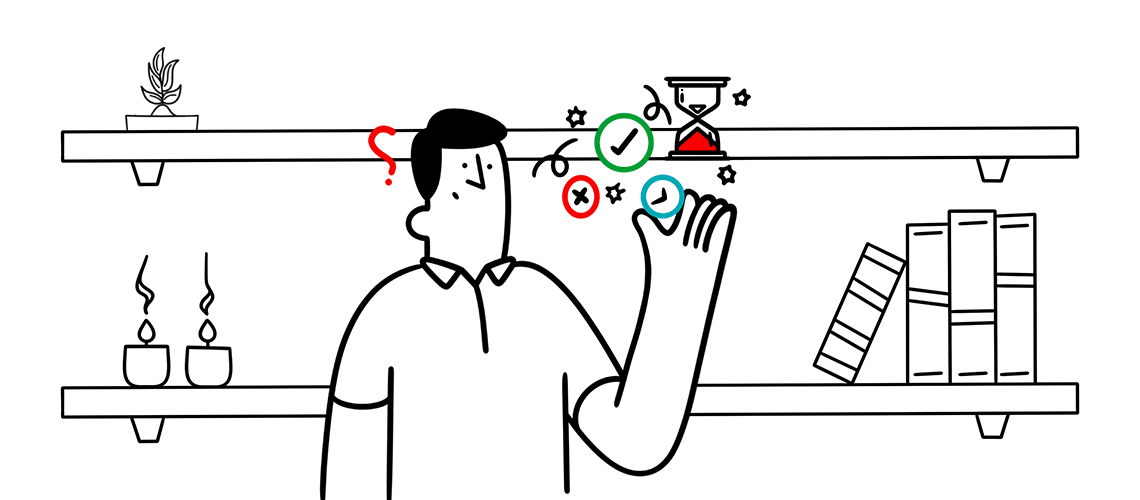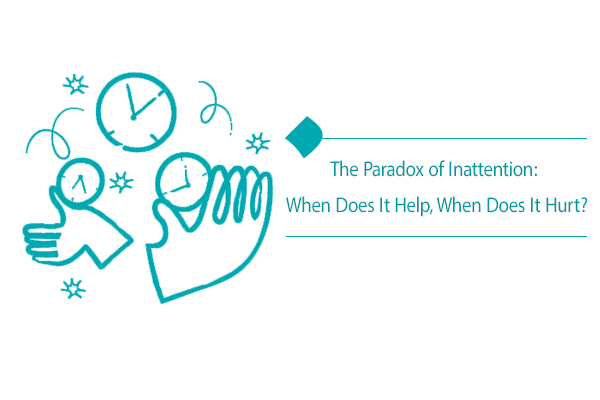The Consequences of Inattention in Vital Matters
It initially seems that inattention is an undesirable behavior. However, upon further reflection, it is realized that all types of negligence are not bad. To illustrate this topic, imagine a driver heading toward an important destination. It is natural that many events will happen while driving, both inside the car and outside it. Car occupants might be arguing with each other. People might have crowded around the roadside accident. What would happen if the driver were to pay attention to each of these events?
He would get distracted. He could not focus on his important task. This distraction could lead to an accident. It could cause the driver to get lost or at best, he would reach his destination late. A wise driver gives the road his full attention. He pays no attention to the distractions around him as much as is possible.
In our worldly lives it goes like this. In this world, we are like drivers moving to a specified destination, that is, eternal life. We have control over the steering wheel of our cars; it is we who determine the direction of our lives.
Moving toward eternity, we are encountered with two categories of matters in our lives. The first category consists of matters directly related to the purpose of our creation and bliss. Any inattention to these matters leads to sever consequences both in this world and the hereafter. The second category includes matters akin to roadside distraction. Excessive focus on these matters hinders us from walking on the right path in life. Now the question is: to What category does each matter fall into? How do we determine which matters fall into the first category and which fall into the second? In the following, we will answer these questions.

The Value System Governing the World
It is important to consider that we are not allowed to categorize matters based on our desires. We cannot determine how important some matters are on a whim and as a result dedicate our time and energy to them. On the other hand, we must not allow inattention to make us treat some matters as unimportant and overlook them. The reason for this is that the structure of the universe and the human being is entirely mathematical and governed by rules. Within mathematical structures, everything is in due measure and the value of all our decisions, relationships, behaviors, and thoughts are specified. In such structures, we can even choose between two good behaviors and know which one is more valuable and brings us closer to bliss. So we cannot manipulate the measurement standards and values in the universe; of course, some self-serving individuals may change the ethic norms for their own benefit. They may devalue standards, but all these deeds endure less and their impact is limited to this mortal world. When we leave this world and enter another realm, we will fully realize the true value of things. We will understand that we have wasted our lives through negligence, indifference, and inattention to important matters. It is at this point that we feel overwhelmed with regret. We know we are losers. However, unfortunately after we die, it is impossible to come back to the earth and make amends.
So we learned that everything in this world has a specific value. The only thing we have to do is to know the value of things. Once the values are established, we clearly understand where we put our time and energy and what we should overlook. In this case, if something costs two dollars, we put our energy accordingly and we will dedicate the rest of our time to more valuable things that we need more in the hereafter. Knowing the value of things prevents loss and maximizes our productivity; however, how do we value something?
The Experts Who Determine the Values in the Human Dimension
You might have come across the term “expert valuation.” In commodity trading, wise and knowledgeable people consult an expert to protect themselves from being taken advantage of. An expert is someone who has a comprehensive grasp of all the dimensions of a subject. The expert assesses the value of a commodity by using established criteria. He determines the profitability of the transaction based on the assessment.
Regarding consulting an expert, there is a principle called the principle of the Primacy of Expertise. According to this principle, everything has its own specialized expert. No one asks a real estate expert to estimate the value of his car, nor does he consult a stock market expert when buying a refrigerator. So in any commodity trading, it is rational to refer to a specialized expert of that field and everyone unconsciously adheres to this principle.
The matters related to life in this world and hereafter also need their relevant experts. The main expert of these matters is God. God is the creator of all things. He has created the universe and the human being based on a precise mathematical structure. He is the One who defines the measures and limits in all aspects of the world. So to know the value of different aspects of life and their priority, we should refer to God and His special representative i.e., the Infallibles. The infallibles (PBUT) are the full manifestation of God and His successors on Earth. They have been taught knowledge by God Himself. Therefore, if anyone wants to know his duties and the world around him and how to make decisions for different aspects of life, he must refer to the Infallibles and take their guidance in shaping his life’s direction.
The more we are aligned with the lifestyle of the Infallibles and our actions and behaviors are compatible with theirs, the more we are blissful both in the world and the hereafter. All values and measures are determined by the Infallibles. When the infallible person commands us to avoid a certain action, it means that action is either worthless or harmful. In fact, even it is a desirable action, it will lead to loss. On the other hand, when an infallible person instructs us to perform an action, it means that action is valuable, even though we are reluctant to do it.
The Prophet of Islam, beautifully articulates the value of different matters in a hadith. This golden sentence can shed light on different matters of our lives: “whoever cries for the heaven, he will enter it, and whoever cries for this world, he will enter the hell fire” [1]. Why does Prophet Muhammad (PBUH) make such a classification? The reason is that in the system of measurements, the value of worldly matters, even those we consider very important, is extremely insignificant compared to our existential worth and value. When we feel restless for facing shortages and problems in this world, in fact, we are diminishing ourselves while as a human being we must save our dignity. Our worth is not determined by what we have in this world. We are worth entering Heaven and even higher. We have been created to reach this status. We must make our utmost effort to reach this point. Being preoccupied with worldly matters, holding a grudge and not letting go of resentment, dwelling on past failures, etc., not only bring us no benefit, but also diminish our dignity and distance us from divine grace.
In this lesson, we talked about inattention. We learned that although inattention may be beneficial in some aspects of life, it can be detrimental in others. Then we addressed the principle of the Primacy of Expertise. We stated that determining the value of different matters is in the hands of infallible experts. Only they can tell us the worth of everything that happens to us and whether it is worth spending our precious time on.
References
[1]. Al-Rawandi, Fad Allah. Al-Nawadir lil Rawandi. vol.1, p. 10.

